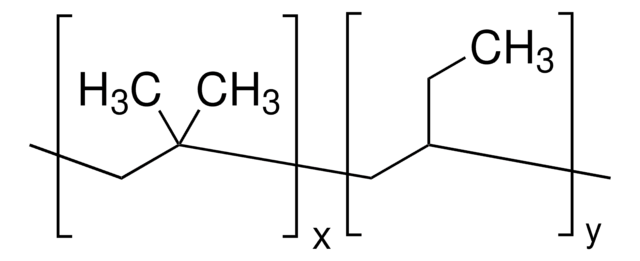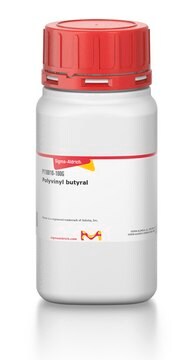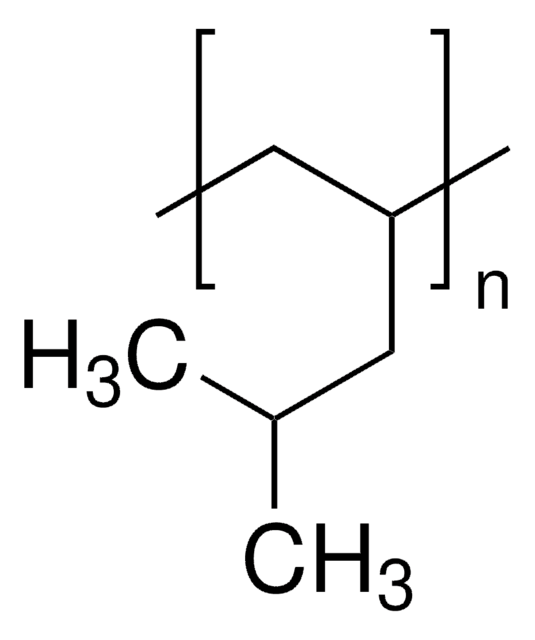388726
Polybutenes
average Mn ~2,300 by VPO, isobutylene >90 %
About This Item
Recommended Products
form
liquid
mol wt
average Mn ~2,300 by VPO
composition
isobutylene, >90%
refractive index
n20/D 1.504
viscosity
4,000-4,400 cSt(99 °C)(lit.)
transition temp
Tg −64.9 °C
pour point (ASTM D 97) +18 °C
density
0.908 g/mL at 25 °C
SMILES string
CCC=C.C\C=C\C
InChI
1S/2C4H8/c2*1-3-4-2/h3-4H,1-2H3;3H,1,4H2,2H3/b4-3+;
InChI key
WTOOLIQYCQJDBG-BJILWQEISA-N
Looking for similar products? Visit Product Comparison Guide
Application
Features and Benefits
Physical form
Other Notes
Signal Word
Danger
Hazard Statements
Precautionary Statements
Hazard Classifications
Asp. Tox. 1 - Skin Irrit. 2
Storage Class Code
10 - Combustible liquids
WGK
WGK 1
Flash Point(F)
159.8 °F - closed cup
Flash Point(C)
71 °C - closed cup
Personal Protective Equipment
Certificates of Analysis (COA)
Search for Certificates of Analysis (COA) by entering the products Lot/Batch Number. Lot and Batch Numbers can be found on a product’s label following the words ‘Lot’ or ‘Batch’.
Already Own This Product?
Find documentation for the products that you have recently purchased in the Document Library.
Customers Also Viewed
Our team of scientists has experience in all areas of research including Life Science, Material Science, Chemical Synthesis, Chromatography, Analytical and many others.
Contact Technical Service











